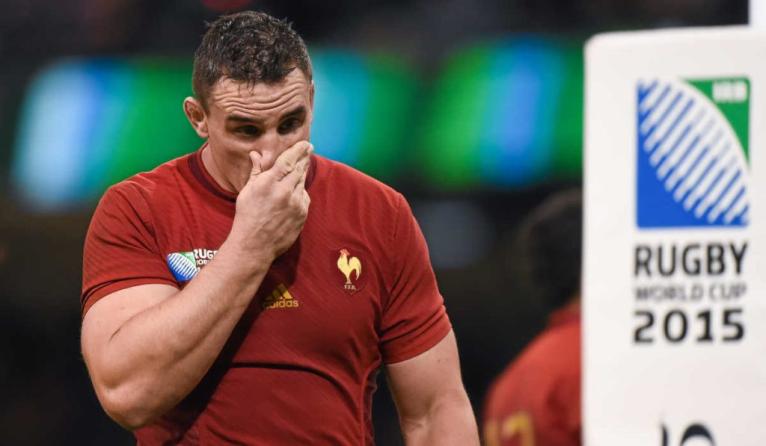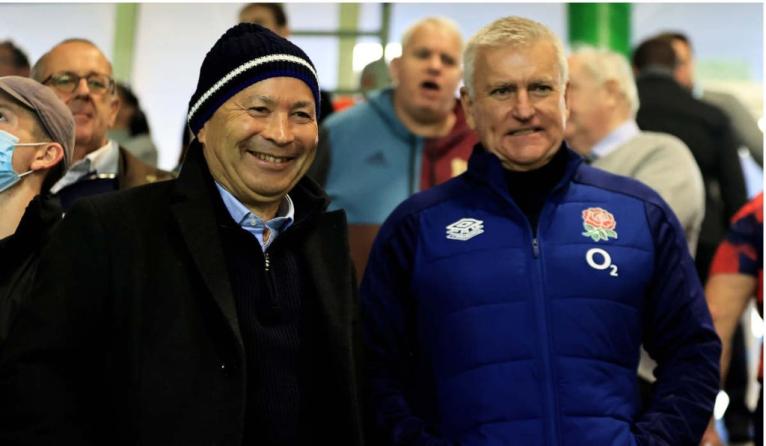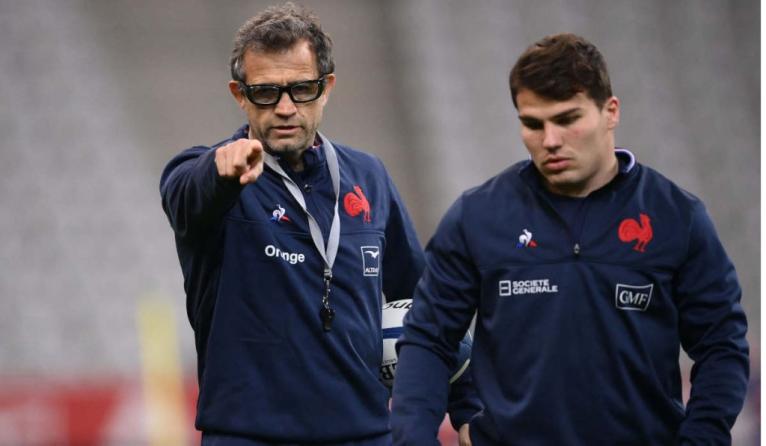Anyone who has taken even a passing interest in French domestic rugby will be familiar with the name and the sight of Paul Goze. He is not the sort of individual one forgets. He played in the second row for Perpignan before becoming an alickadoo; only it was never a blazer and tie for Goze. He clad his massive frame in black and his craggy face was similarly sombre. Goze was not a man who emitted light and warmth in any shape or form. Nonetheless he rose to become one of the most influential figures not just in French rugby but in the international game.
In 2016 Rugby World named him the fifth most powerful figure in the game and I explained why in the magazine. Elected president of the LNR (National Rugby League) in 2012, Goze had promised during his campaign to make the club game ‘prosper and advance’. He was true to his word. Goze was at the heart of the Anglo-French rebellion in Europe in 2013 that led ultimately to the Champions Cup replacing the Heineken Cup, and in 2014 he negotiated a new four-year broadcasting deal with Canal + worth €74m a season. That figure soared to €97m when Goze renewed the deal for 2019 to 2023.
But along the way Goze made enemies with the same abandon as Antoine Dupont scores tries. He upset the then Minister of Sport, Thierry Braillard, when he decided to stage the 2016 Top 14 final in Barcelona, a decision that was vindicated when a club record 99,000 people (I was one) watched Racing beat Toulon in the Nou Camp on an unforgettable evening. He alienated his LNR vice-president, Patrick Wolff, who resigned in protest at the “commercial approach” of the organisation he’d helped found 18 years earlier, and his tempestuous relationship with Mourad Boudjellal was the stuff of legend. The owner of Toulon – at the time the most dominant club in Europe – loathed Goze and once accused him of turning the Top 14 into ‘a Banana Republic’.

Yet, as I wrote in Rugby World in 2016, Goze’s ‘position has never been stronger and the Convention agreed in July with the FFR will make him even more powerful within the French game’.
My predication was premature. Why? Because in December that year Goze’s nemesis arrived on the scene. When Bernard Laporte was elected president of the FFR it’s safe to assume that ‘Crazy Bernie’, as he was known during his days coaching Stade Francais and France, did not receive a congratulatory card from Monsieur Goze. Two months before Laporte’s election victory, Goze had been voted back into office in emphatic style. ‘Paul Ali Bongoze re-elected head of the LNR with 97% [of the vote],’ tweeted Laporte. ‘The African Union rejoices in the progress of democracy in French rugby.’
Laporte had a healthy contempt for the FFR president, Pierre Camou, and in 2015 Laporte had likened the federation to North Korea
This was a sardonic reference to the recent election success of Gabon president Ali Bongo Ondimba, also voted back into office despite widespread allegations of election irregularities.
Laporte had been on Goze’s case for a number of years; as head coach of Toulon from 2011 to 2016, he had shared Boudjellal’s opinion of the LNR. He had also a healthy contempt for the FFR president, Pierre Camou, and in 2015 Laporte had likened the federation to North Korea.
Laporte likes his political comparisons, which perhaps is no surprise as he served in Nicolas Sarkozy’s government as Secretary of State for Sport before taking up his role at Toulon.
The main thrust of Laporte’s FFR election campaign had been the charge that between them Goze and Camou were a disaster for the national team. He had a point. Since Goze was elected to the LNR presidency, the Top 14 had never been healthier and France never weaker: a wooden spoon in the 2013 Six Nations, fourth place in 2014 and 2015 and then that 62-13 humiliation against New Zealand in the 2015 World Cup quarter-final.

Laporte made it his mission to reduce the number of foreigners in the Top 14 and ProD2 (somewhat ironic given the preponderance of overseas players in his Toulon squad) and he also vowed to better manage France’s international stars, affording them proper rest and recuperation.
This had been a particular gripe of Philippe Saint-André when he coached the Bleus between 2012 and 2015. During the Six Nations, for example, French players often played for their clubs on rest weekends from the tournament while their rivals had their feet up. ‘We were the laboratory rats during the years of struggle,’ reflected Guilhem Guirado recently.
A tearful Laporte emerged from custody to rail against those within French rugby who were trying to stage a ‘coup’ against him. The timing of his detention was surely no coincidence
Laporte is as ruthless as he is energetic and no one was spared from his revolution, not even Guy Noves, sacked as coach of the national team in December 2017. Laporte and Goze were frequently in conflict as they battled for the soul of French rugby. It was a bitter conflict, culminating in the detention of Laporte in September 2020 by law enforcement officers investigating allegations of malfeasance within the FFR. For more than 24 hours Laporte was quizzed about his relationship with Montpellier owner Mohed Altrad (who was also taken into custody), and specifically whether he pressurized the FFR appeals committee to reduce a sanction against Montpellier for a breach of the salary cap in the 2016-17 season. Might that have had something to do with Laporte’s company, BL Communication, signing a lucrative image rights contract with Altrad in 2017?
A tearful Laporte emerged from custody to rail against those within French rugby who were trying to stage a ‘coup’ against him. The timing of his detention was surely no coincidence, just weeks before the FFR’s presidential election. The campaign battle between Laporte and his challenger, Florian Gill, had been vituperative, revealing the deep divisions within the French game.

Unsurprisingly, Goze had thrown his weight behind Gill, and Laporte suspected he might have had a hand in his rendezvous with the anti-fraud investigators. That accusation drew a swift retort from Goze, who described them as ‘contemptible’, rubbishing the idea that he had the power to influence the country’s criminal investigators.
It was a grubby imbroglio, played out against the backdrop of an increasingly acrimonious dispute between the LNR and the FFR concerning player release for the 2020 autumn internationals. Midi Olympique, the twice-weekly rugby newspaper, was at its wits’ end, lamenting in an editorial at the start of that season that “we’ve all seen the bickering and infighting without which our rugby would not be truly French.”
The only bickering and infighting is across the Channel, in England, where RFU chief executive Bill Sweeney admitted last week that everyone is ‘fed up’ with how the game in structured
Wind forward eighteen months and France are the Grand Slam champions and the bookies’ favourites to win next year’s World Cup. The only bickering and infighting is across the Channel, in England, where RFU chief executive Bill Sweeney admitted last week that everyone is ‘fed up’ with how the game in structured. This, he believes, is largely to blame for England’s current malaise, as opposed to the coaching staff whose muddled tactics and selections are in stark contrast to the clarity of the French national team. Whisper it, but are England the new France, a team and a union coming apart at the seams?
The day after France had beaten England 25-13 to win the Grand Slam, their first Six Nations title since 2010,Le Monde newspaper ran a piece entitled: ‘The Bleus’ success is also due to the Holy Alliance of French rugby’.
Aside from the coaching nous of Fabien Galthié , Shaun Edwards et al, and the gifted young generation embodied by Antoine Dupont, Le Monde highlighted that for the first time in years the LNR and the FFR are at peace. ‘Not so long ago, the image would have come from a science-fiction movie,’ remarked the paper. ‘The captain of the French team, lifting the Six Nations trophy in front of the presidents of the FFR and LNR, side by side, both beaming.’

What had caused this rapprochement? The departure of Paul Goze, replaced as president of the LNR in March 2021 by René Bouscatel. Goze hadn’t gone quietly – even mooting the idea of a third term in the job, despite the rules limiting each president to a maximum of two – but ultimately he knew that the FFR would never allow such an eventuality to pass.
Laporte, who has never been charged with any offence following his release from custody, was re-elected in his position in October 2020 and six months later Bouscatel replaced Goze. He is a former president of Stade Toulouse, and, perhaps of greater significance, an erstwhile deputy mayor of the city. In other words he understands the art of diplomacy, of compromise rather than confrontation.
‘The superb dynamic of the Bleus is due to a collective determination to go forward together,’ declared Bouscatel on the night France clinched the Grand Slam. It was a message of unity endorsed by Laporte, who saluted the ‘intelligence of the clubs and the LNR administrators’. He added: ‘The French team is the shop window of French rugby, that’s clear’.
Everyone now gets that, from the FFR to the LNR to the club presidents, and if France do win the World Cup next year it will be as much to do with the teamwork off the field as the teamwork on it.


Comments
Join free and tell us what you really think!
Sign up for free